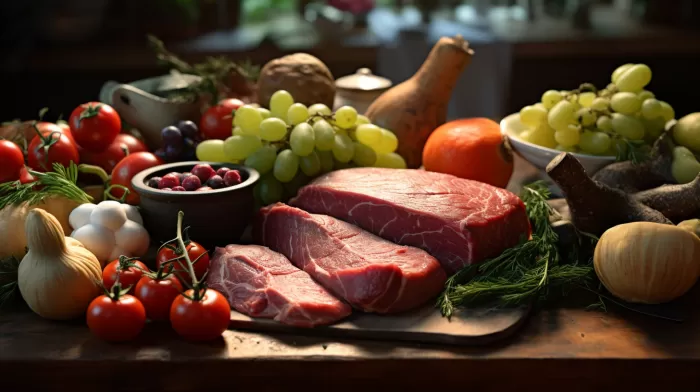Weight loss myths can confuse even the most determined dieter, with one of the most persistent being that “a calorie is a calorie”, implying that weight loss is merely a matter of cutting calories. This myth leads the well-intentioned down a path filled with frustration and potentially negative health outcomes. However, the paleo philosophy of eating offers a more valid alternative: it’s what you eat — not necessarily how much you eat — that has the most significant impact on your health and weight.
Calories are the energy contained within the food we consume, playing a crucial role in fueling our activities and, sometimes, constructing body fat. Unfortunately, mainstream advice tends to portray all calories as equal. This misconception becomes especially problematic when it’s applied to diets aimed at reducing diabetes risk.
Research at the Steno Diabetes Center in Gentofte, Denmark, discovered that a person’s choice of food — not the number of calories they consume — directly influences their diabetes risk. The study investigated how weight differences in identical twins impacted the body’s reaction to fast-food consumption. The results were clear: a lower body mass index and fewer consumed calories did not protect the body from the damage inflicted by poor-quality food rich in damaged fat and sugar.
Other factors also challenge the ‘a calorie is a calorie’ myth. The time of day when you eat meals, for instance, can significantly affect how your body deals with calories. Those who are active during the night and don’t get enough sleep will find their bodies attempting to store more fat. Eating the same number of calories while working on a night shift, for example, will be more fattening than if you were working during the day. Watching TV or computer screens late at night can also negatively impact your body’s nutrient and calorie usage, as your body struggles to manage shifting from day to night.
Instead of calorie counting, a more effective approach is to pay attention to the glycemic index of the food you’re eating, as this directly impacts sugar management and weight gain. Numerous studies have demonstrated that low-carb, paleo diets are optimal for shedding pounds, while reduced-calorie, low-fat diets don’t measure up. The reason is simple: people need to eat, and the quality of the food consumed makes all the difference.
Balanced Meals, Balanced Body
Creating a nutrient-dense, low-calorie diet can be challenging, but opting for whole, natural foods is always your best bet. Eating plenty of grain-free, paleo-approved foods means consuming high-quality protein, unsaturated fats, essential vitamins, and minerals. Here’s a closer look at what to eat, and why:
Protein: Consuming high-quality protein sources like grass-fed meat, wild-caught fish, and free-range poultry is essential for repairing and building tissues and maintaining good bone health. It also helps stave off hunger by making you feel fuller for longer.
Unsaturated Fats: Monounsaturated and polyunsaturated fats, found in avocado, nuts, seeds, and fatty fish, are crucial for heart and brain health. Like protein, they also have the added benefit of making you feel satiated.
Fruits and Vegetables: Eating whole fruits and vegetables — the more colorful, the better — provides you with essential vitamins, minerals, and antioxidants. They also help manage blood glucose levels due to their low glycemic index.
Carbohydrates: Contrary to popular belief, you still need carbohydrates on a paleo diet. The key is to ditch processed grains and stick to healthy, unprocessed sources such as sweet potatoes, yams and butternut squash. Going slightly against the paleo grain, some whole grains like quinoa and brown rice can also be included.
Nutrient-rich diets like the paleo diet ensure that you’re filling up on the right stuff, delivering substance that helps your body thrive. Remember, when it comes to staying healthy and managing your weight, it’s the quality of the food you eat not the calorie count that matters.



